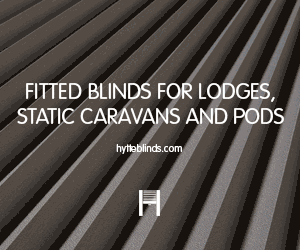MP IN LAW CHANGE PLEA
MP IN LAW CHANGE PLEA AFTER ISLE OF WIGHT CARAVAN OWNERS TOLD TO LEAVE
An MP has called for a “loophole” to be closed after static caravan owners lost thousands of pounds when a new landlord told them to leave. Isle of Wight MP Bob Seely said holiday operator Aria Resorts was allowed to tell owners to vacate its parkland as no dates appeared on leases.
The owners claimed they were told their caravans could stay at the site indefinitely by the previous landowners but no date was written on their licence agreements.
Isle of Wight MP Bob Seely said “It should be a requirement for static home owners buying a plot to be given a leasehold for a specified time.
Many of the residents had “invested a lot of money” only to lose it months later.
It seems to me that what we need is to close that loophole in the law so when you buy into a caravan site and if you have a plot, you should have a leasehold for an amount of time.
We want to stop this from happening again”.
A recent BBC South report highlighted the plight of seventy-one caravan owners at Rookley Country Park on the Isle of Wight who received letters last year from the site’s new owners ordering them to remove their homes.
A spokesman for the new owner, Aria Resorts said “35 people were given notice to remove their caravans before the end of 2017, and a further 36 would be required to leave before the end of 2018”.
The spokesman added: “Owners who had fixed-term contracts have been allowed to stay on site in accordance to their time stipulated. In one case, this amounts to nearly 10 more years.
Aria Resorts fully upholds owners’ rights to their agreed time on site according to their specific contracts”.
The report only reinforces the need for buyers to check that the park owner is a member of the National Caravan Council or the British Holiday & Home Parks Association: all members should adhere to the Code of Practice. Unlike Park Home Owners, Holiday Home Owners are not covered by the Mobile Home Act (1983). That’s why your written agreement is so important. Ask to see a written agreement from your park owner before you commit. If you are unsure seek independent legal advice or contact the National Association of Caravan Owners (NACO).





